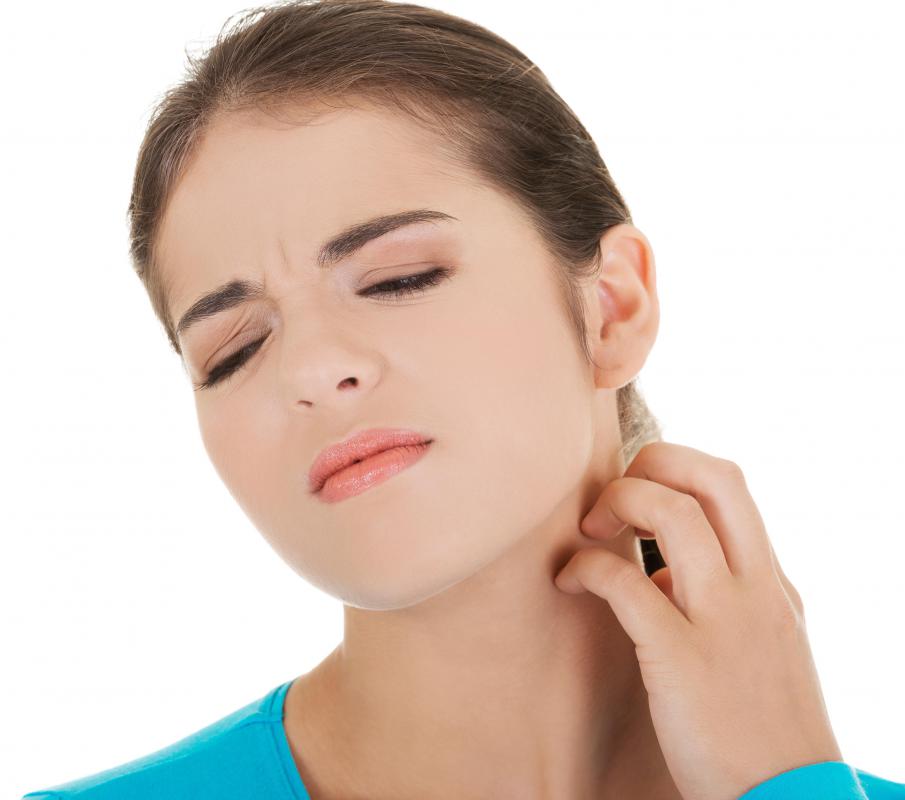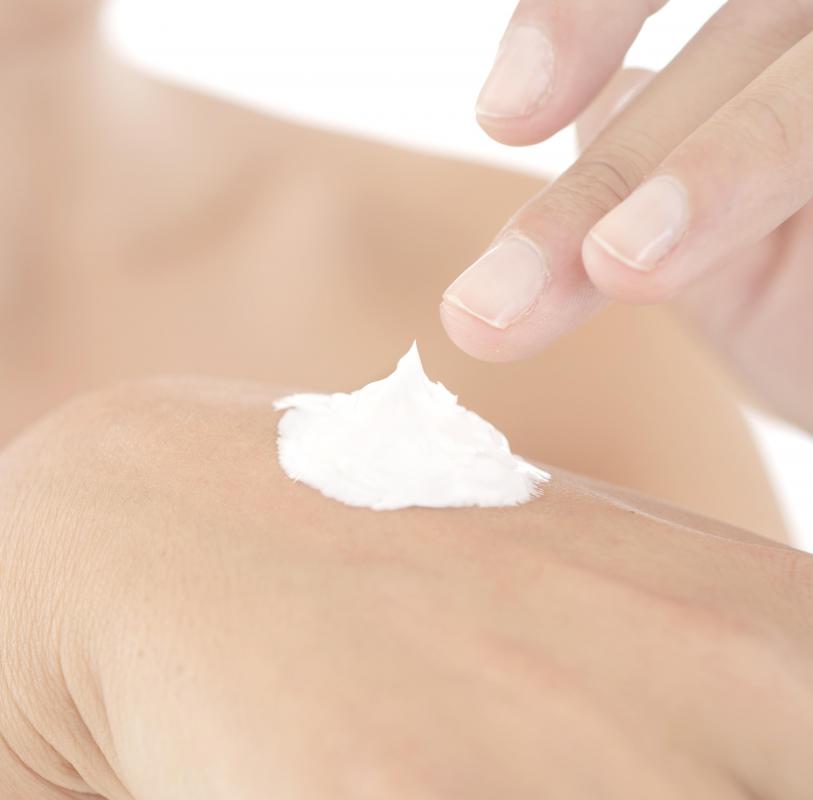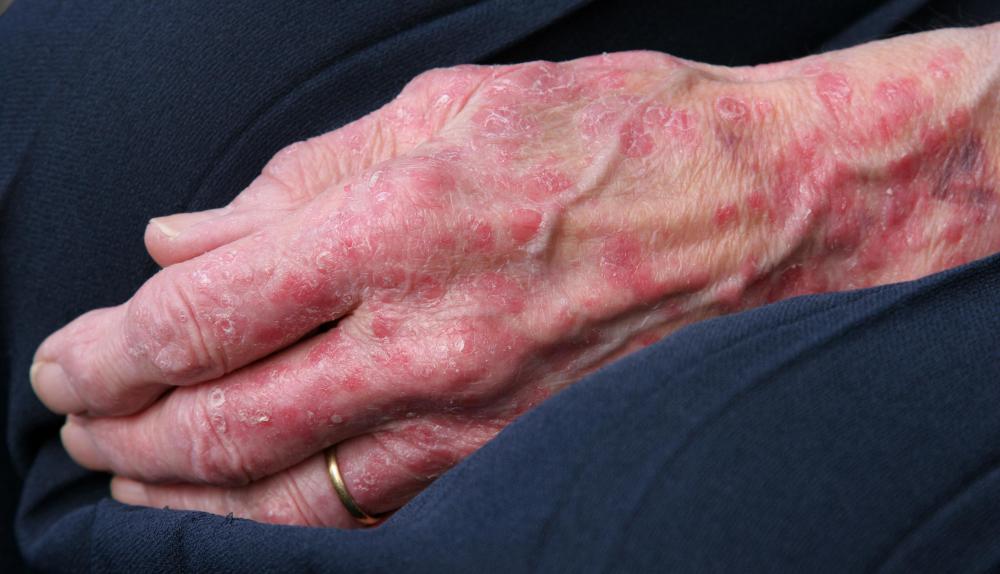At BeautyAnswered, we're committed to delivering accurate, trustworthy information. Our expert-authored content is rigorously fact-checked and sourced from credible authorities. Discover how we uphold the highest standards in providing you with reliable knowledge.
How Do I Know If Products Are Lanolin-Free?
Lanolin is a yellow, waxy substance found in sheep's wool that helps protect the animals from moisture and keeps them clean. It is a common ingredient in creams, lotions and beauty products used to moisturize and protect the skin. It is also found in industrial lubricants and healthcare products as well as many other types of items. Lanolin-free products can usually be found by either looking for products that advertise their lanolin-free status or by reading the list of ingredients. It may be necessary to check the ingredients for the many common derivates of lanolin as well, especially if the reason for avoiding it is an allergy.
In order to make sure a product is lanolin-free, first look for lanolin, lanolin oils or lanolin alcohols in the list of ingredients. Other ingredients that could indicate lanolin was used in the product include substances that contain the words "lanolate," "lanogene," "laneth," "lanosterols," "triterpene" or "aliphatic" alcohols, or "cholesterin." Additionally, "sterols" should be avoided unless the label specifies the substance as a plant sterol. If the label lists "sterols" as a single word, or if it says plant and animal sterols, the product is probably not entirely lanolin-free.

If the product says it is lanolin-free or cruelty-free, it most likely will not contain lanolin or its derivative ingredients, but you may still wish to check. Some people debate whether or not lanolin actually is a cruelty-free product, so products that avoid ingredients known to be tested on animals may still contain lanolin and lanolin extracts. People who are allergic to lanolin can sometimes use products that contain a highly purified form of it known as hypoallergenic anhydrous lanolin. This ingredient is an option for those with allergies, but those avoiding lanolin because of animal cruelty issues should look for products that contain only vegetable and plant oils.

Many people buy lanolin-free products because they have skin allergies to lanolin that cause itchy, red rashes. Other people who avoid using lanolin do so because they believe the wool industry is cruel to the sheep used in lanolin production. Lanolin is extracted from sheep's wool by boiling the wool after is sheared from the animal, so sheep are not slaughtered in the process. The belief that many hold is that the sheep are mistreated, neglected or otherwise abused while being raised and farmed for their wool.

Sheep used in wool production often are bred to have extra-wrinkled skin to allow more wool to grow. This can give flies and insects places to lay eggs and may allow maggots places to flourish and harm the sheep. The process of shearing wool does not require injury to the sheep, but animal advocates claim that they are sheared roughly and often injured in the process. Additionally, the process of "mulesing," a cutting away of the skin on the rear end and backs of the legs, is alleged to be done without anesthetic. Those who wish to avoid all wool products, including lanolin, as part of a cruelty-free lifestyle, or those who have lanolin allergies, should carefully examine the ingredients of the products in question or contact the manufacturer to be sure that they contain plant and vegetable oils instead of lanolin and lanolin-based oils.
AS FEATURED ON:
AS FEATURED ON:
















Discussion Comments
Thank you for the information Rundocuri. I didn't realize that lanolin originates from sheep. It certainly isn't something I want to put on my body now that I know what the source is. From now on, I will be shopping for lanolin free cosmetics.
Another way to avoid products that contain lanolin is to use those that are labeled vegan. These products have no animal-based ingredients and are usually lanolin free. They are sometimes hard to find, but many online stores sell brands that specialize in natural products that do not use chemicals, oils, and animal byproducts.
Post your comments